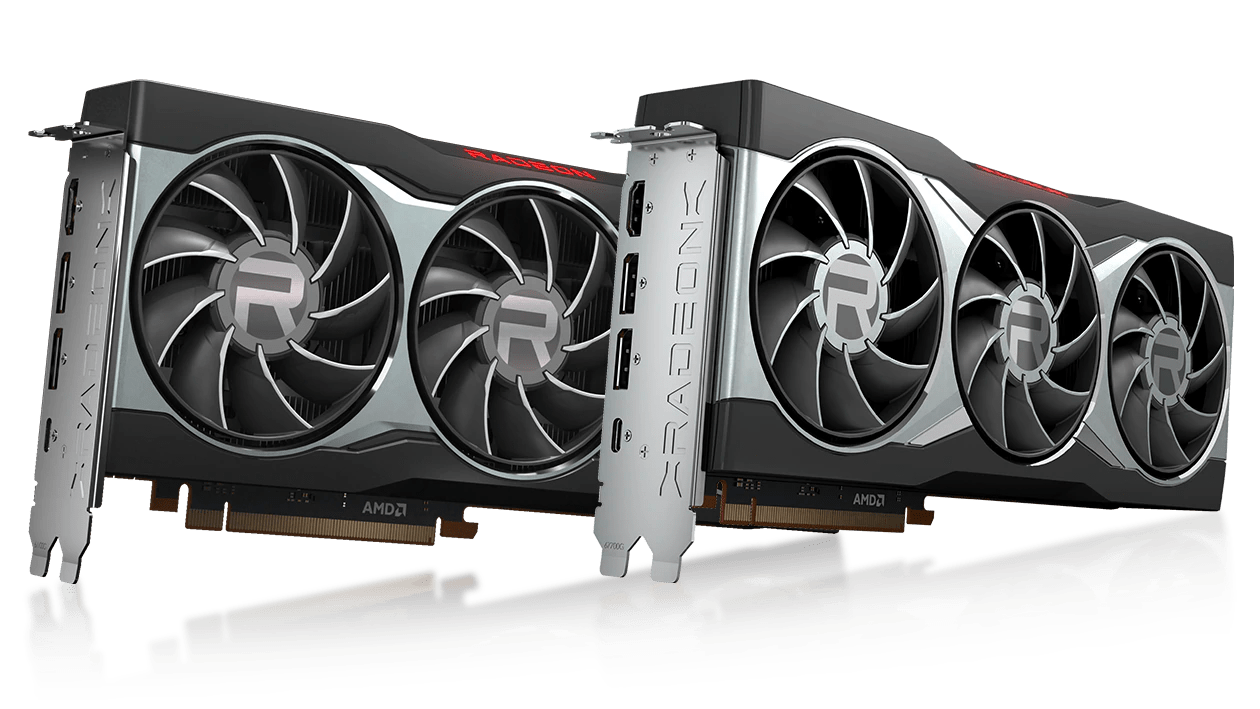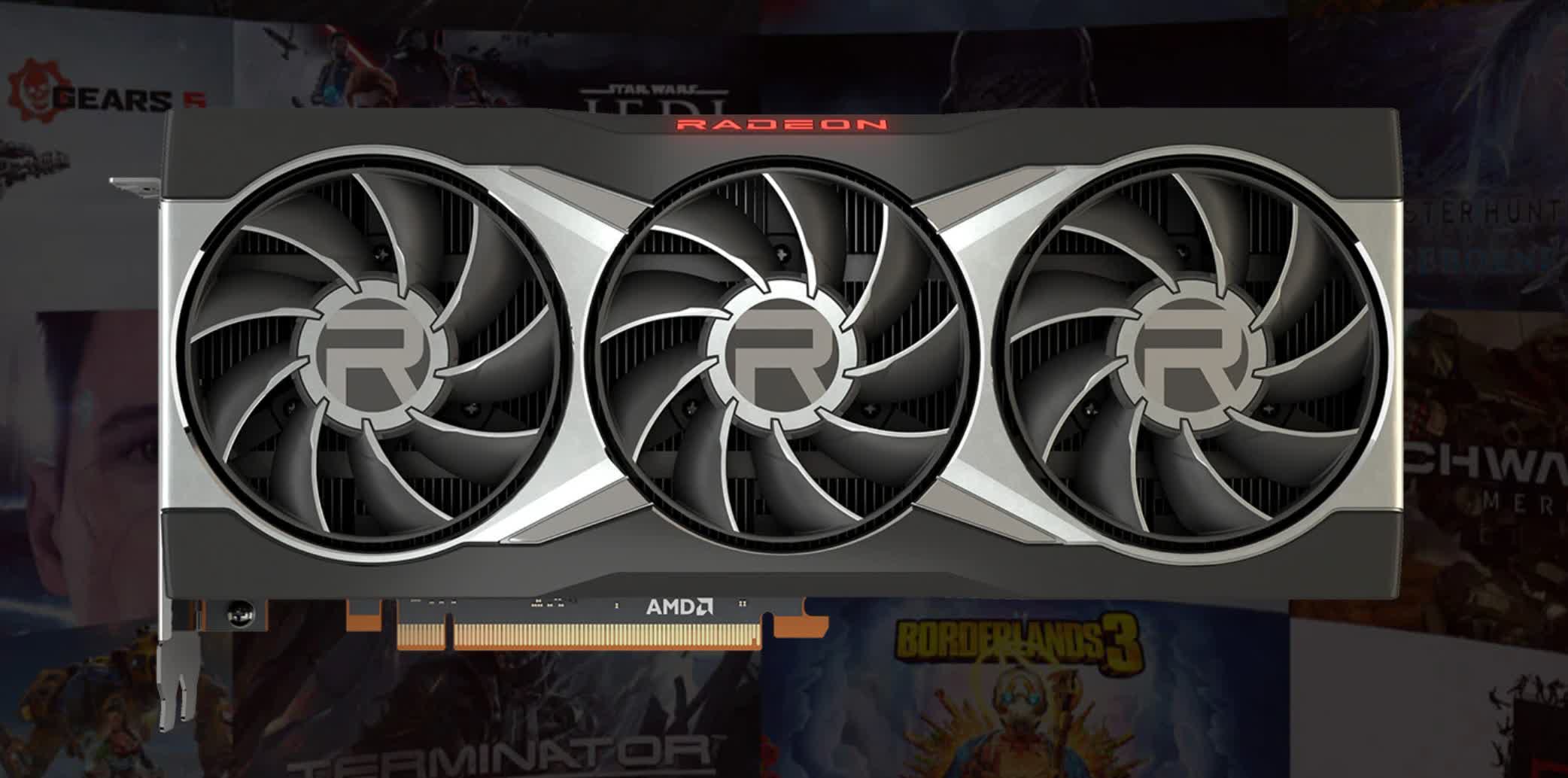Cutting corners: AMD claims that their upcoming Radeon RX 6000 series GPUs are, on average, faster than their Nvidia counterparts, and they're willing to back that up with raw data... of their own. That means AMD may be painting the RX 6000 GPUs on their best possible light, picking popular games that are likely already optimized at the driver level, and benchmarking using Ryzen 5000 series processors, which are said to give them an extra boost by enabling Smart Access Memory.
In case you've been living under a rock: the Radeon RX 6000 series is AMD's response to Nvidia's RTX 3000 graphics processors. Namely, the RX 6900 XT ($999) targets the RTX 3090 ($1,500), the RX 6800 XT ($650) targets the RTX 3080 ($700), and the RX 6800 ($580) targets the RTX 3070 ($500).
In addition to the benchmarks AMD showed during the cards' launch, AMD has posted new more detailed benchmarks they ran in-house using the following games: Battlefield V, Borderlands 3, CoD: Modern Warfare, The Division 2, Doom Eternal, Forza Horizon 4, Gears 5, Resident Evil 3, Shadow of the Tomb Raider, and Wolfenstein Youngblood. Ten games in total running at 1440p and 2160p at the highest quality presets. They included the RTX 3090, RTX 3080, and RTX 2080 Ti for comparison and all those results are posted on AMD's website.

We're due to testing Ryzen 5000 CPUs next week, as well as the new Radeons when they become available later in November and December. Meanwhile, AMD's test bench used the yet unreleased Ryzen 9 5900X and 16 GB of 3200 MHz memory. The processor's unique Smart Access Memory feature was enabled, which reportedly boosts the system's overall performance by sharing resources between the processor and graphics card.
Average Framerates
| RX 6900 XT | RX 6800 XT | RX 6800 | RTX 3090 | RTX 3080 | RTX 2080 Ti | |
| 1440p (2K) | 188 | 178 | 154 | 175 | 163 | 129 |
| 2160p (4K) | 112 | 103 | 88 | 109 | 99 | 76 |
Onto the data itself. These are bold claims from AMD, though once again, they are using a specific test bench that may favor their GPUs which may lack balance but that doesn't make the testing or results inaccurate.
At 1440p, on average, the RX 6900 XT seems to beat the RTX 3090 by 7%. The RX 6800 XT is 9% faster than the RTX 3080 and the RX 6800 outdoes the RTX 2080 Ti (an near equivalent to the RTX 3070) by 19%.
In 4K benchmarks the margins tighten a little. The RX 6900 XT beats the RTX 3090 by 3%, the RX 6800 XT is only 4% faster than the RTX 3080 and the RX 6800 can handily beat the RTX 2080 Ti by 15%.





There are a few other interesting results that the averages don't reveal:
- Although the RX 6900 XT is the fastest card on average, it only beats the RTX 3090 in half the games.
- Forza Horizon 4 and Battlefield V favor AMD cards in a more overwhelming manner. In both titles, at 1440p, AMD's cards came first, second, and third.
- The only time the RTX 3080 was able to beat the RX 6900 XT was in The Division 2 at 4K.
- The RTX 2080 Ti came last in every benchmark. This GPU's performance is close to the new $500 RTX 3070.
Although conclusions can't be properly drawn until the reviews are in, it looks like choosing the best graphics card will come down to what games you play and whether you place some value on ray tracing (AMD has not said much about ray traced performance), DLSS or features like Smart Access Memory.
Overall, AMD's Big Navi GPUs look impressive on paper and we can only rejoice about having them compete hand to hand against Nvidia's best once again.
